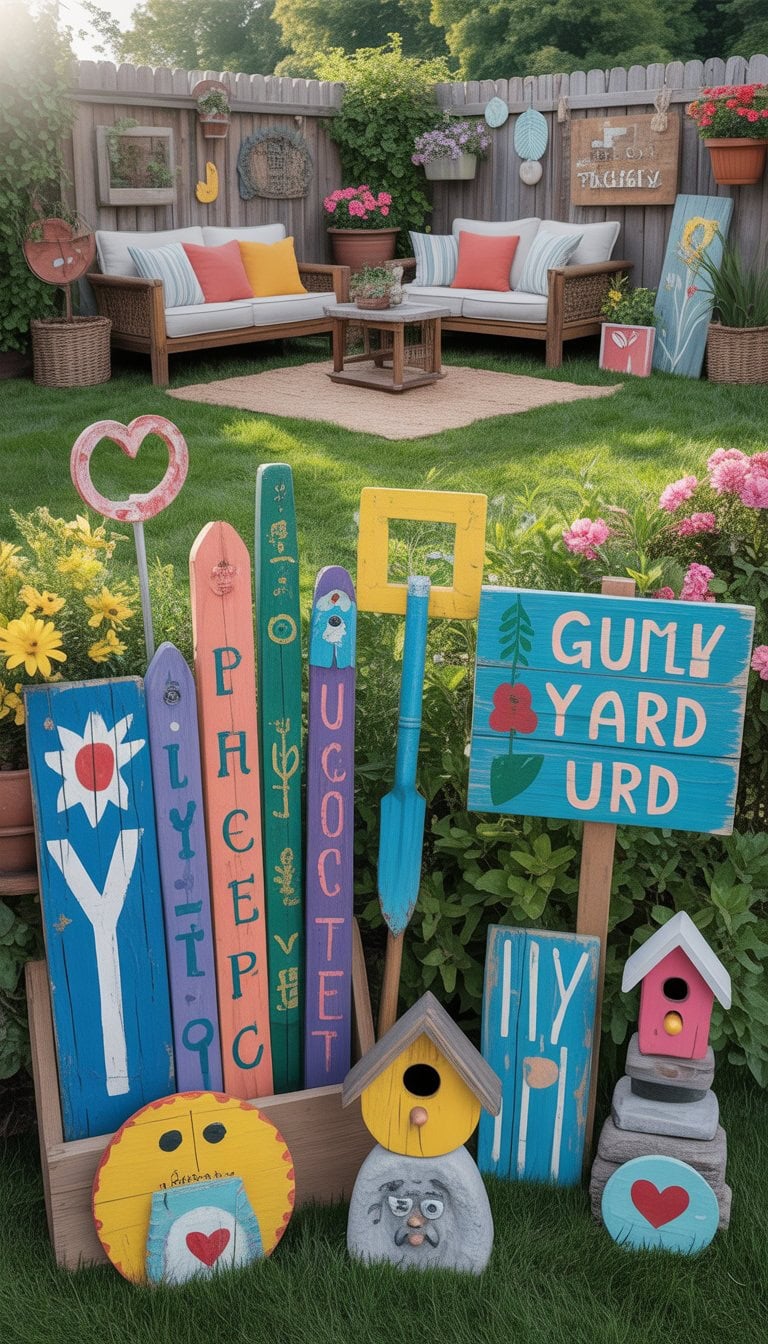A few years ago, I was in your shoes—staring at my yard, dreaming about what the right fence could do for my space and privacy. The process of finding a trustworthy fence contractor felt overwhelming with so many choices and little clear advice. I wanted someone reliable, experienced, and easy to communicate with, but I also didn’t want to pay too much or end up with regrets.
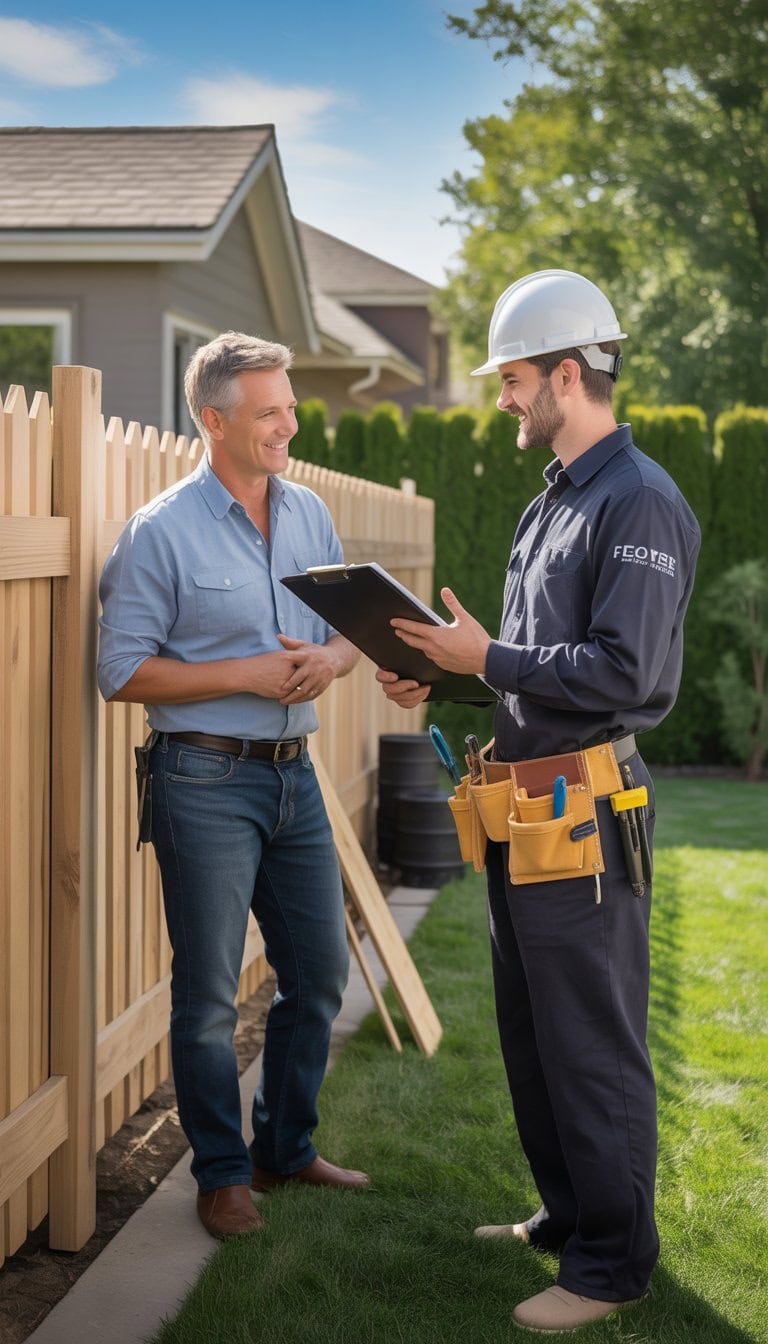
The best way to hire a local fence contractor is to do your homework, check their credentials, and compare a few quotes before making a decision. After going through it myself, I learned you really need to ask about their experience, check that they’re licensed and insured, and make sure you’re clear on costs and the agreement before anything begins. A few extra questions and calls can save so much heartache and money in the end. If you’re ready to turn your backyard into something beautiful and safe, you’ll want a friendly pro who cares about your home as much as you do.
I’m excited to walk you through the exact tips and steps that helped me get the fence I truly wanted—without the stress or second-guessing. Together, we’ll make sure you find the best fence contractor for your needs, one who gets your vision and delivers quality you can be proud of.
Key Takeaways
- Know what you want and research local options closely
- Compare quotes and check credentials before hiring
- Good communication and clear contracts make installation stress-free
Understanding Your Fencing Needs
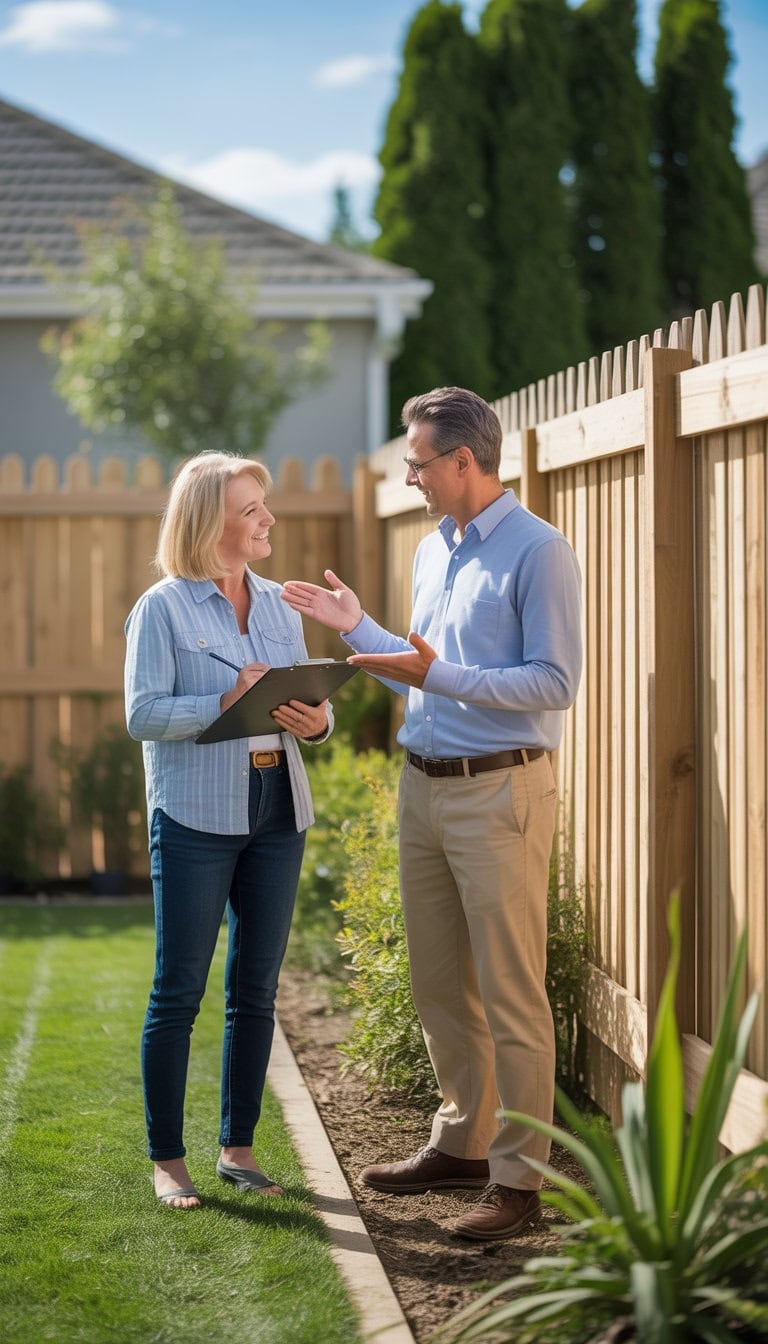
Before talking with any contractors, I always get clear about what I want from my new fence. This helps me avoid surprises, spend my money wisely, and make sure my fence fits my yard and my life.
Defining Your Project Scope
I start by making a simple checklist of what I need the fence to do. Do I need privacy from neighbors? Am I keeping pets or kids safe inside the yard? Maybe my main goal is to mark where my property ends.
If I want to make my yard more welcoming, I might add things like lamp posts, mailbox posts, or even arbors. I also think about how tall the fence should be, how many gates I need, and if I want special touches like custom pergolas.
These details help contractors give me more accurate quotes. It also helps me avoid changing the project halfway through, which often costs more and takes longer.
Quick Scope Checklist:
- Privacy
- Security
- Curb appeal
- Pets or kids
- Decorative features
Choosing Fence Types And Materials
Picking a fence style and material is one of my favorite parts. Each choice comes with its own strengths. A wooden fence offers a classic look and privacy, but it needs some regular care to look its best. Vinyl fencing asks for less maintenance and doesn’t rot, which saves me time.
For a strong and affordable option, I look at a chain link fence—it’s easy to install and great if I have pets. Ornamental aluminum fences look sharp and won’t rust, so they’re perfect for a sleek modern style without a ton of upkeep.
I also think about the weather where I live. Heavy rain, wind, or snow can impact my choice. If I’m adding arbors or custom pergolas, I make sure the materials match or complement the main fence.
| Fence Type | Pros | Cons |
|---|---|---|
| Wood | Natural look, privacy | Needs maintenance |
| Vinyl | Low upkeep, resists rot | Can crack in cold |
| Chain Link | Budget friendly, strong | Less private |
| Ornamental Aluminum | Stylish, rust resistant | Not for privacy |
Considering Landscaping And Property Features
I look around my yard before choosing where the fence will go. If there are big trees, uneven spots, or gardens, these will affect the fence line. I might need tree service to remove or trim trees blocking the way. Flower beds or gardens can be protected by placing fences or arbors nearby.
If my property is hilly, I ask about fence options for slopes. Some materials are better for tricky ground. Drainage and runoff also matter—I try not to block the natural flow of rainwater, because that can cause puddles or even flood my garden.
Sometimes, it’s smart to add custom touches like a mailbox post or lamp post near the fence, which can boost curb appeal. Thinking carefully about these property features helps me avoid mistakes, extra costs, and keeps my fence looking great for years. For more tips, I check out advice on understanding fence needs and company reputation at Angi’s fence contractor guide.
Researching Local Fence Contractors
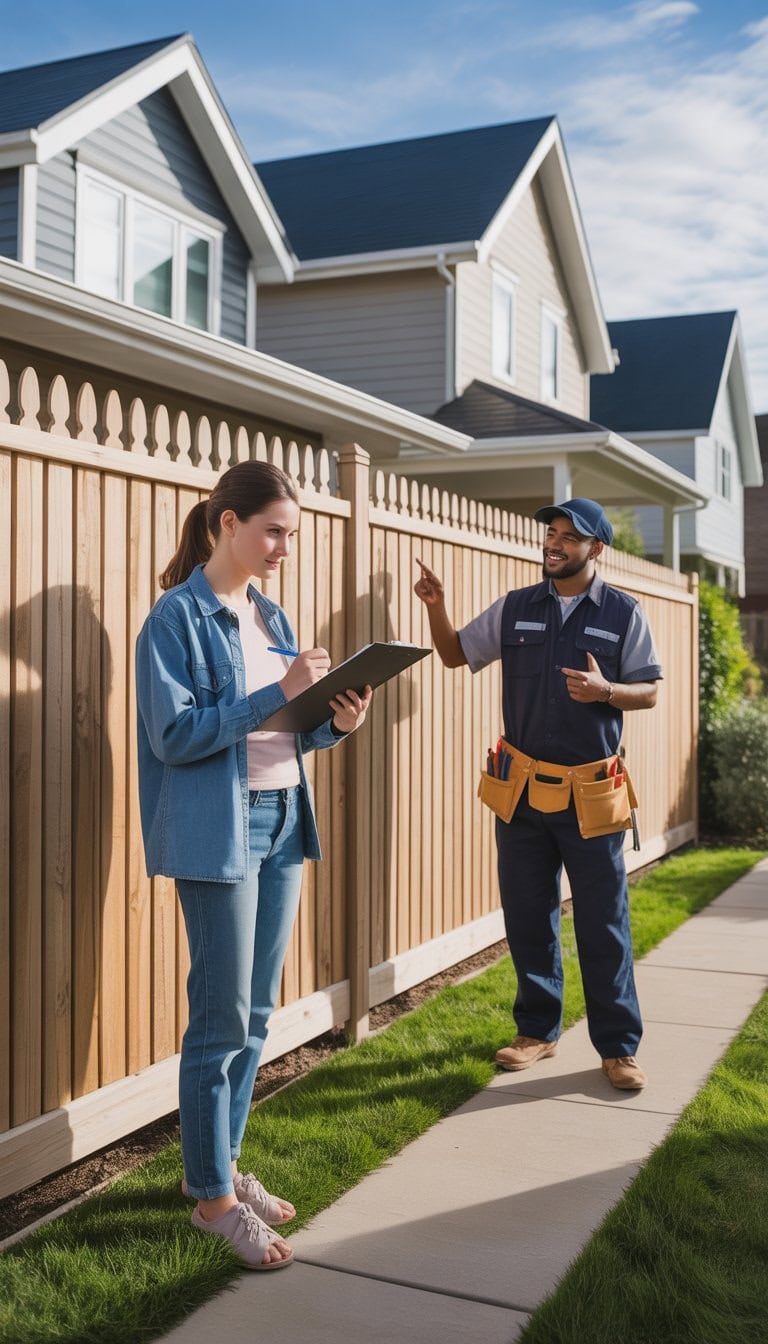
Before hiring anyone to install your fence, I believe it’s worth taking the time to really dig into your options. There are a few steps I always follow to make sure I’m getting a reliable contractor who fits my needs and budget.
Using Online Resources And Reviews
When I start my search, I look at websites like HomeAdvisor and Angi to find a list of fence contractors nearby. I focus on places with honest ratings and lots of recent reviews so I can see how different companies perform.
I pay special attention to businesses with awards, like the Angi’s List Super Service Award or those that are a BBB Accredited Business. These show the company has a history of good service and trustworthiness. I always read both the good and the bad comments to help me avoid any surprises with professionalism or work quality.
It’s helpful for me to make a quick comparison table featuring average ratings, certifications, and quick notes:
| Contractor Name | Avg. Rating | Notable Awards/Accreditations |
|---|---|---|
| The Fence People | 4.8 | BBB Accredited, Angi’s List |
| Fences by Stoneridge | 4.7 | BBB Accredited |
| Random Local Contractor | 4.2 | None |
A little extra time on reviews helps me spot red flags before I make any calls. You can learn more about this process in guides on how to hire a fence contractor.
Evaluating Past Projects And Portfolios
I ask each contractor to show me photos or examples of fences they’ve installed. This gives me a sense of their style, quality, and attention to detail. Sometimes companies like Fences by Stoneridge or The Fence People keep albums of past projects on their website or in a printed portfolio.
Looking at real before-and-after pictures helps me picture how my own fence might look. I always check for straight lines, solid posts, and even paint or stain. I’ll even drive around my area to see fences they’ve put up and look for the signs many contractors leave on their work. This way, I can spot anything I like—or don’t like—about their finished jobs. Tips like these are echoed on Quora’s suggestions for finding a good fence professional.
Contacting Previous Clients
Before making my final decision, I ask for references from the fence contractors I’m considering. Most trustworthy companies, especially those who are BBB Accredited, will gladly provide names and numbers. I try to contact at least two or three past clients.
I keep my questions simple and direct:
- Was the contractor on time?
- Did the final price match the estimate?
- Are you happy with how your fence turned out?
These real conversations tell me a lot about what I can expect. Past clients can share whether any problems popped up and how well the contractor handled them. Even just a short phone call helps me feel more confident before signing anything.
If you want more advice on this step, check out tips for hiring a local fence company.
Requesting And Comparing Quotes
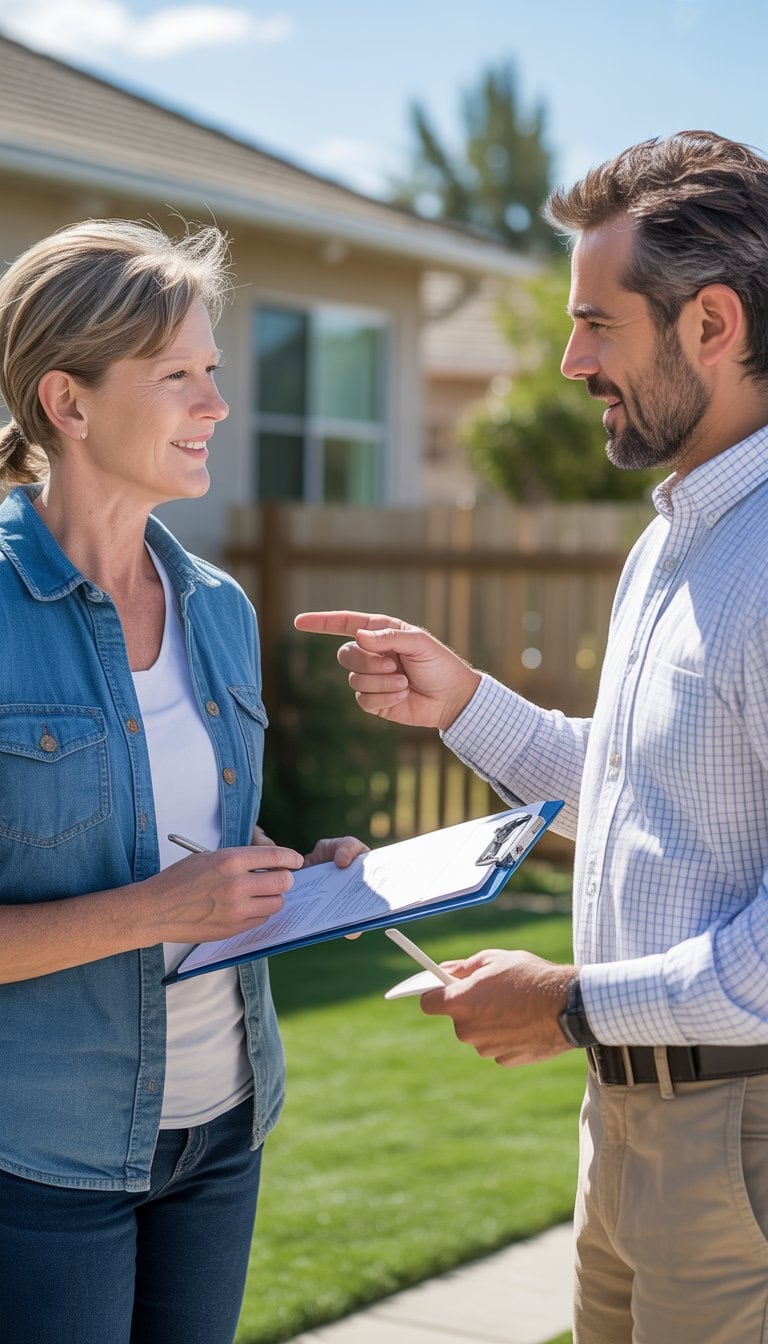
When I started looking for a fence contractor, I wanted to make sure I got the best value for my money. I quickly learned that detailed quotes and careful comparisons are key to finding a reliable fence company with reasonable rates.
Gathering Local Quotes
I reached out to at least three local fence contractors before I made any decisions. This helped me see what different companies were offering and spot wide price differences early on.
I asked each contractor for a detailed written estimate. The quote should list the total cost, brand and type of materials, labor charges, and any extra fees. I made sure the quote covered everything, such as permits, site prep, old fence removal, and cleanup.
Some tips I found useful:
- Call or email local companies with good reviews.
- Ask if they are a full service fence company (handling permits, utility checks, and hauling away the old fence).
- Request a clear timeline for when the job will be done.
For step-by-step advice on gathering thorough estimates, I found information like this especially helpful.
Comparing Services And Prices
Once I had several quotes, I compared more than just the price. I closely checked what was included in the quote. Some companies offered better quality materials or a longer warranty for almost the same cost as others.
I made a simple table to compare things like:
| Contractor Name | Total Cost | Type of Material | Labor Included | Warranty |
|---|---|---|---|---|
| Company A | $4,200 | Cedar | Yes | 3 years |
| Company B | $4,100 | Pine | Yes | 1 year |
I looked at whether the fence company had experience in my neighborhood and if they promised a reliable fence backed by a guarantee.
Remember to check if cleanup and hauling away the old fence are part of the deal. Sometimes a lower quote leaves out important services, so it’s not always the best option. There’s some solid advice for comparing fence quotes that helped me spot these details.
Evaluating Credentials And Reliability
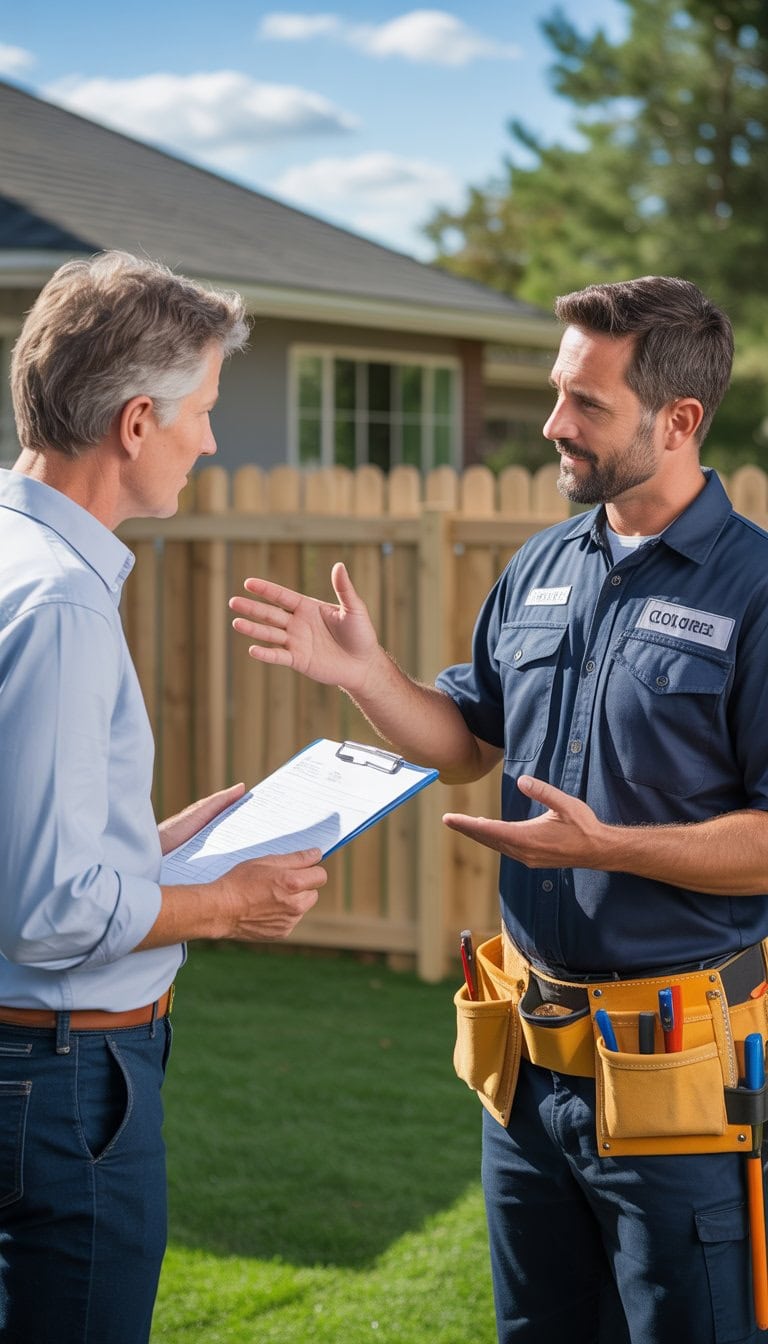
Finding someone to build a fence for my home took more than just price shopping. I wanted peace of mind from knowing the contractor was both qualified and credible.
Verifying Licenses And Insurance
The first thing I checked was if the fence installers were licensed to work in my area. A valid license shows the contractor has the right education and meets local building codes. This is key for avoiding trouble with local authorities if something goes wrong.
I also asked for proof of insurance, especially liability coverage. Without liability insurance, I could be on the hook for damages or injuries that happen during the job. Workers’ compensation is important, too, because it protects both me and their team if someone gets hurt.
I made a quick checklist for hiring:
- State or local license in good standing.
- Proof of liability insurance.
- Workers’ compensation certificate (if they have employees).
I did not move forward until I saw documentation on all of these.
Checking For Accreditations
Accreditations show a contractor cares about maintaining good standards. For me, a good sign was being a BBB accredited business, which meant they met the Better Business Bureau’s rules for honesty and service.
I also looked for memberships in professional associations, like the American Fence Association. Belonging to these groups usually means they stay current on best practices and education.
Reading through reviews helped me spot a reliable fence company. I checked for patterns of satisfied customers and how the company solved problems when things didn’t go as planned. Companies with accreditations and strong reviews stood out as my best options, as they were more likely to deliver quality work and take responsibility for their job.
Understanding Contracts And Legal Considerations

I learned the hard way how important it is to check every detail in a fence contract. I also make sure I understand what happens if something goes wrong with the fence later. Even simple mistakes or misunderstandings can end up causing big headaches about property lines or neighbor complaints.
Reviewing Contracts Thoroughly
When I read a fence contract now, I look for the basics first. The document should have my name, the contractor’s name, and both addresses. It lists what kind of fence I’m getting, the material, the exact location, and the total cost. I never rush this step. I double-check that the property line is correct. If the fence is even a few inches off, I risk a dispute with my neighbor or even trouble with the HOA.
I like to ask the contractor questions if any part of the agreement is unclear. Sometimes I’ll share the contract with a real estate lawyer for legal advice, especially if the project is expensive or close to a boundary line. A lawyer can spot issues like unclear terms or parts missing from the contract. I also check if the contract covers things like who gets rid of the old fence, who handles permits, and what happens if there’s a weather delay. Here’s a tip—get everything in writing to avoid confusion.
Discussing Warranty And Service Terms
For me, understanding the warranty might be the most important part. I make a list of questions before talking to the contractor, like:
- How long does the warranty last?
- Does it cover both materials and labor?
- What is excluded?
- How do I make a claim?
Warranties protect me if there are problems like sagging posts or rust within a year or two. I find out if I need to do certain maintenance to keep the warranty valid. I also ask about service terms. Some contractors offer repairs for free during the warranty period, while others might charge for anything beyond the original work.
It’s smart to talk with my HOA if I have one. Sometimes they require fences to meet certain standards, and ignoring them can cause legal issues or even claims of a private nuisance or nuisance. If I’m ever unsure, I don’t hesitate to check with a real estate lawyer for legal advice or read guides like Understanding Your Fence Contractor Contract for tips on avoiding common mistakes.
Planning For Installation And Design
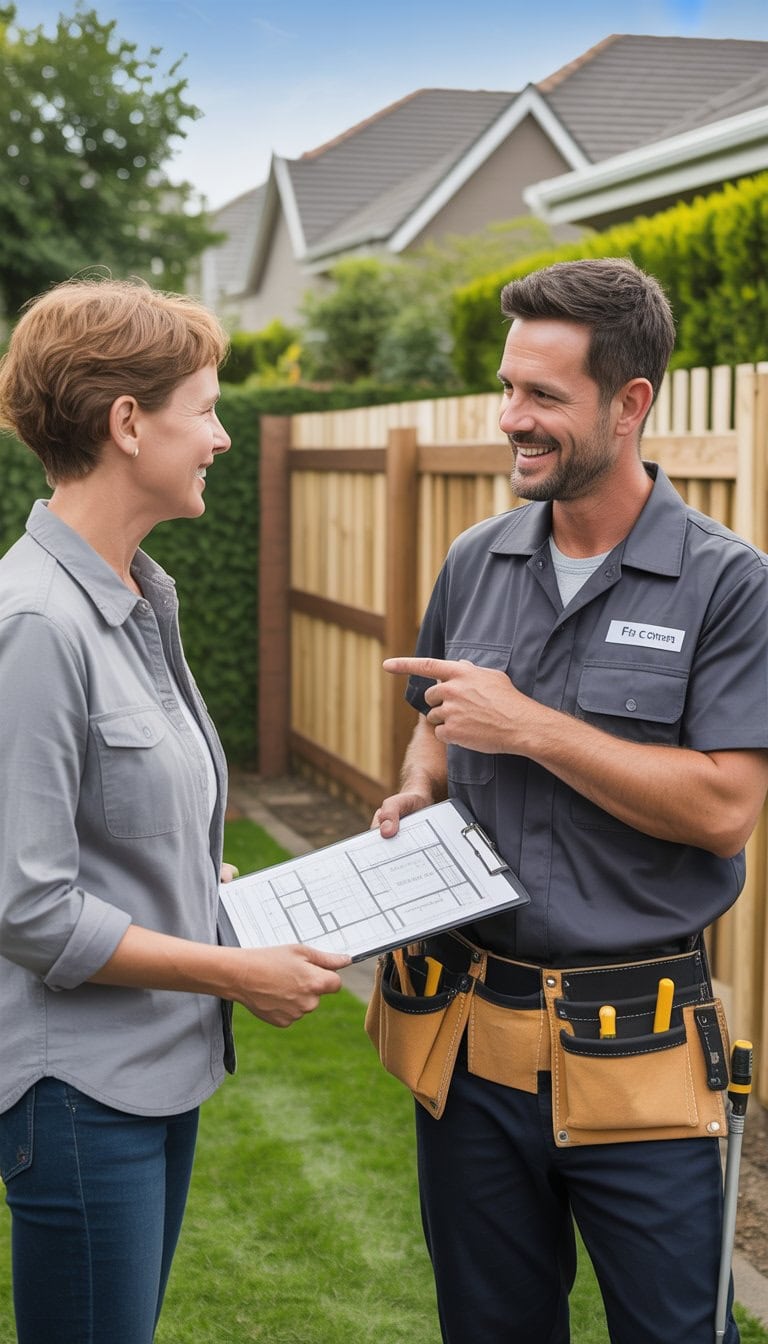
Fence installation needs more than just picking materials. I find that preparing my yard and working with other services, like landscaping, make the process go smoothly and avoid problems down the road.
Preparing Your Property
Before any work starts, I make sure my property line is clear and marked. This helps prevent disputes with neighbors about where the new fence or any additions should go. I walk the line myself and even double-check with town records.
I look for anything in the way, such as bushes or trees. Sometimes, tree removal is needed, or I have to trim back branches. Rock piles, leftover brush, and any leftover debris from previous remodeling or total yard renovation projects must be hauled away.
I always clear the mowing area too. Mowing, edging, and mulching become easier and safer when the work zone is tidy. When a retaining wall or other hardscapes are nearby, I make sure they’re not in the project path, since moving them later could be time-consuming and costly.
Coordinating With Landscaping And Yard Services
Getting fence installation done right often means working side-by-side with landscaping pros. I’ve learned to schedule work with my mowing or mulching team so their services don’t clash with the fence contractor’s schedule.
I arrange for fall cleanups and brush removal ahead of fence work. This way, the contractors have clear access, and I avoid last-minute stress. Planning around hardscapes, flower beds, and edging helps keep my landscape looking its best.
Sometimes, I’ve done residential renovations or additions while planning the fence. I always communicate with everyone involved, like yard crews and contractors, to make sure nothing gets damaged or missed. This teamwork cuts down on surprises and helps keep the whole project on track.
Ensuring Excellent Customer Service
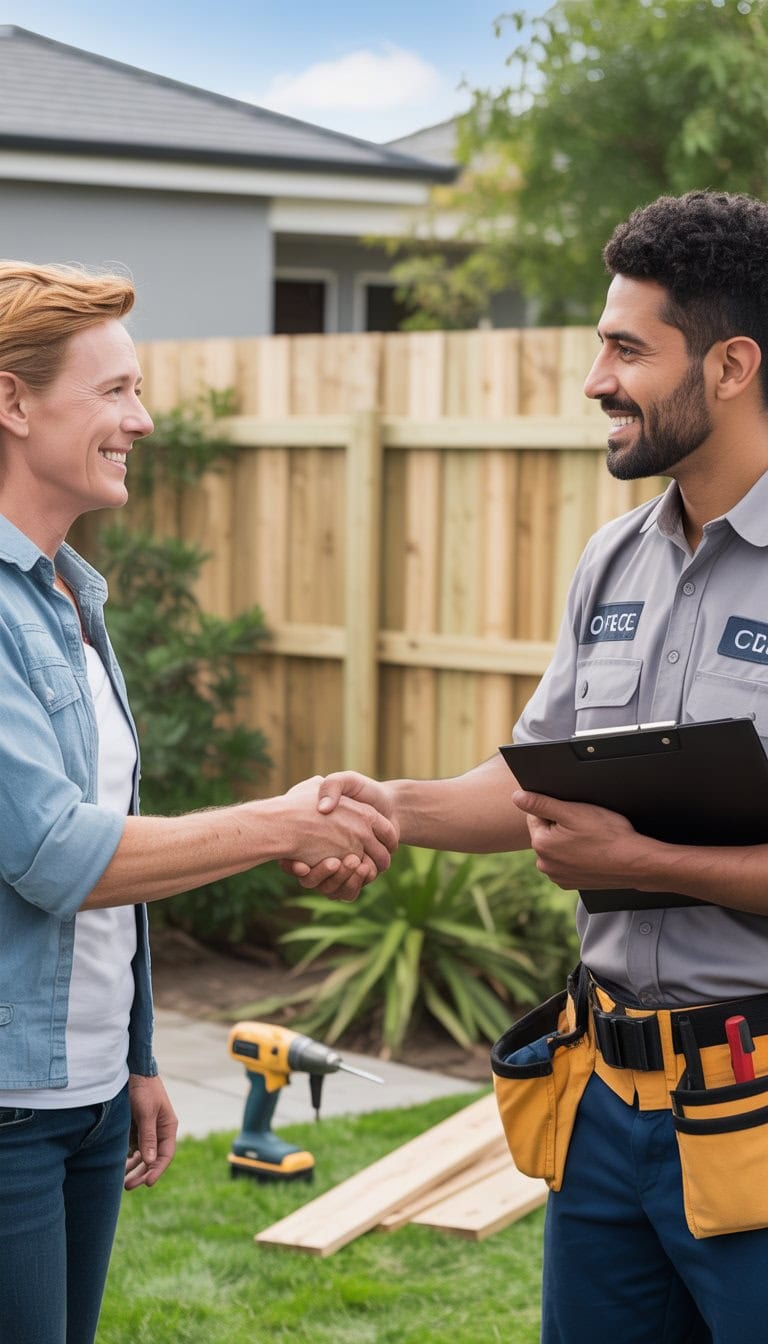
When I hire for home improvement work, I always look for great customer service as much as quality craftsmanship. Clear conversations and fast responses can make the whole process less stressful, especially with a big job like a new fence.
Communicating Expectations Clearly
I never assume the contractor knows exactly what I want. I always sit down and discuss my goals for the fence, the material I prefer, and even how I want the yard left when they’re done. I make a checklist of my must-haves—like height, gate placement, and privacy level—and go through each one with them.
Having everything in writing helps. I ask for a written contract that includes the job details, estimated timeline, and payment schedule. This sets clear standards from the start. I also make sure the contractor will be available for questions or updates, so I don’t feel left out of the loop. Regular updates and quick answers make all the difference.
If I think of changes during the project, I talk to them right away. I don’t want confusion later. What I’ve learned is that a good contractor will be glad to answer questions and work out small issues before they grow.
Dealing With Issues Post-Installation
After the fence goes up, I do a walkthrough with the contractor. I check every panel and gate to make sure the job matches what we agreed on. If I spot a problem, I point it out politely and directly. Most reputable contractors handle touch-ups or fixes without any fuss, which is part of good customer service.
If something breaks or shifts a few weeks later, I know it’s important to reach out quickly. Reliable companies will usually offer a warranty or a guarantee. I keep a copy of my contract and any contact information handy, so I can get in touch fast if I need repairs, as suggested by questions to ask a fence contractor.
Staying organized and keeping all my paperwork in one folder makes follow-ups easier. Whenever I’ve needed help down the road, clear communication and a positive attitude have given me better results.
Frequently Asked Questions
I know first-hand that hiring the right fence contractor can get confusing. It helps to have real answers to common concerns that come up when you start this kind of project.
What should I look for when choosing the perfect fence for my property?
When I picked my fence, I paid attention to style, privacy, and how much upkeep I was willing to do. I also checked neighborhood rules and local codes before choosing. It matters whether you want privacy, security, or just something that looks nice.
Can you guide me on how to get an accurate estimate for fencing installation?
I found it helpful to measure my property line and decide exactly where I wanted the fence. Always ask contractors for an estimate in writing and check if it covers materials, labor, permits, and cleanup. For more details on this, check out tips to get a reliable fence installation estimate.
What are the key questions to ask a contractor before installing my fence?
I always ask if they are licensed and insured, and if they’ll handle local permits. I request references and photos of their past work. There’s a longer list of questions you might consider asking, found at critical questions for fence contractors.
How can I assess the best balance between quality and cost for a new fence?
I compare quotes from at least three contractors. Cheaper isn’t always better—sometimes you pay less upfront but more in repairs later. I also look for warranties and check reviews to see if the fence stands up over time.
Could you share tips for understanding the pros and cons of different fencing materials?
Wood looks great and is easy to paint, but it needs upkeep and can rot or warp. Vinyl won’t rust or rot, but it can crack in cold weather. Metal is strong and lasts long, though it can get rusty if not taken care of.
What insights can you offer on the expected longevity and maintenance of popular fencing options?
Wood fences often last 10–15 years with regular sealing and repairs. Vinyl and aluminum fences usually last much longer—sometimes over 20 years—with little work required. I’ve learned that spending a little more at the start can mean saving time and money on maintenance later.

